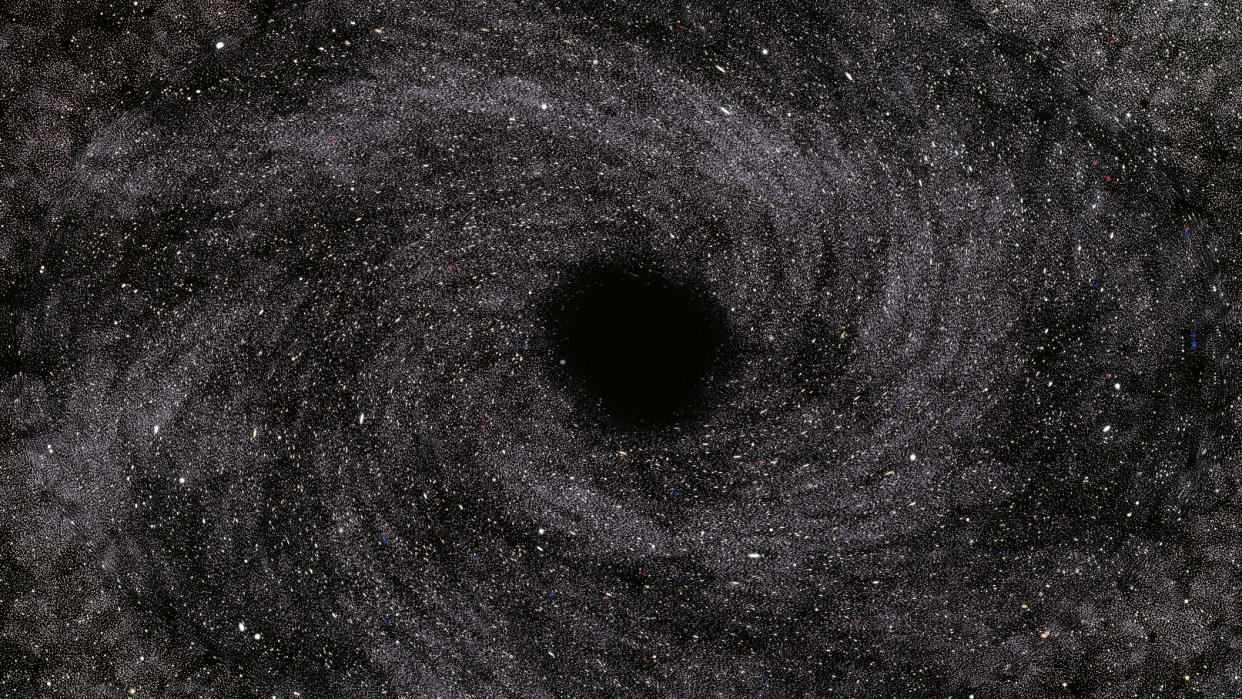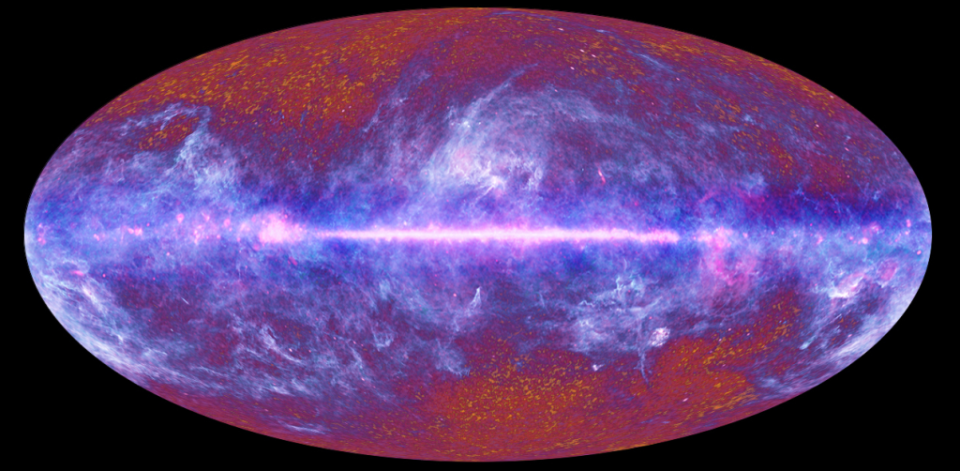Is the vacuum of space truly empty?

- Oops!Something went wrong.Please try again later.
Imagine going out to the deepest, emptiest place in the universe, achieving a perfect, total vacuum. Would you be surrounded by emptiness? The answer to that question is much subtler than you might realize.
The modern journey into the vacuum began in the 17th century, with a flashy experiment designed by Otto von Guericke, mayor of the town of Magdeburg in the Holy Roman Empire. As part of a political stunt to show that his city had rebounded after the ravages of the 30 Years' War, von Guericke put on a demonstration for the emperor and other notables to show off his newly invented vacuum pump. By placing two hemispheres together and pumping out all of the air, Otto showed that not even a team of horses could pull the hemispheres apart.
Contrary to millennia of thought in Europe following Aristotle's argument that "nature abhors a vacuum," von Guericke showed that the vacuum was possible.
In the decades following von Guericke's demonstration, philosophers and scientists wondered if the vast reaches of space were filled with some sort of material known as the ether, which would serve two purposes: One, it would still prevent a true vacuum from forming, and two, it would function as a medium for light waves to propagate through.
Related: Here's how the universe could end in a 'false vacuum decay'
However, in the late 1800s, two physicists in Cleveland, Albert Michelson and Edward Morley, devised a clever experiment to measure changes in the speed of light as Earth moved through the ether. No changes were detected — and soon, Einstein would demonstrate that the speed of light was always constant — so scientists eventually moved away from the concept of the ether, allowing for the possibility of a true vacuum.
Still, even far from Earth, there's plenty of stuff floating around: charged particles zipping here and there, wandering hydrogen atoms, bits of fluff and dust minding their own business. Even though the density of interstellar space is billions of times lower than even our emptiest human-made vacuum chambers, it's not 100% percent empty.
To reach the emptiest places in the universe, you have to travel to the cosmic voids, the vast regions of nothingness that dominate the volume of the cosmos. In the depths of the largest voids, you can stand hundreds of millions of light-years from the nearest galaxy. The cores of the voids are so empty that not even dark matter — the mysterious, invisible form of matter that makes up the bulk of every galaxy — doesn't even have a presence.
But still, space wouldn't really be empty. Suffusing the entire cosmos are lightweight, neutral particles called neutrinos as well as the radiation left over from the early days of the universe. This radiation, known as the cosmic microwave background (CMB), is responsible for over 99.99% of all the radiation in the universe, and it's impossible to escape. So, even in the darkest voids, you're not entirely lonely.

So let's say you were to build a giant box thick enough to block out the neutrinos and the CMB, leaving you alone inside. (Technically, the walls of the box would emit photons of their own, but let's leave that aside for this thought experiment.) Would you be alone then?
Quantum physics provides a surprising answer: No. Physicists have discovered that quantum fields soak all of space and time, and these quantum fields give rise to the particles of everyday life. But when left to their lonesome, the quantum fields have an intrinsic energy, known as vacuum energy. This energy is omnipresent throughout the universe. Even though you wouldn't have any particles around you, you'd still have this energy to be your sole companion.
So what if you concocted a device to nullify the vacuum energy (which is technically impossible, but let's keep going with the thought experiment)? Would you finally, truly be alone in the universe, surrounded by the perfect ideal of an all-encompassing nothingness?
The answer to that is … it depends. You'd still be an object in space, and some view space itself to have existence. We like to think of space as just a mathematical abstraction, a way for us to measure location and extent. But the concept of space began to take on a more concrete character with the work of René Descartes, the 17th-century genius who invented a mathematical foundation to describe space. If you've ever written down the x- and y-axes of a Cartesian grid, you have Descartes to thank for it.
Isaac Newton elevated the concept of space to serve as an absolute background for the motion of objects and the physical laws that govern their behavior. This is modern physics in a nutshell: Objects move and interact with each other on the background of space, which is assumed to exist.
Related stories:
—Giant voids of nothingness may be flinging the universe apart
—Listen to the void: Why cosmic nothingness has so much to say
—Is there anything beyond the universe?
Einstein took this one step further with general relativity, where space is promoted from a background stage to a starring actor — a dynamic, flexible entity that responds to the presence of matter and directs the motion of that matter. It is space itself, and especially its dynamics, that gives rise to the force of gravity.
So is space just a mathematical abstraction, a tool we use to describe the relationship between physical objects, or is it something more? Here's an interesting thought: What about gravitational waves? Gravitational waves do not require the presence of matter or energy to move; they simply exist as undulations in space-time itself. So if space is just a mathematical tool, then how can the waves exist on their own?
There is no firm answer to the question of whether true nothingness can exist. It could be that the concept of space is just a mathematical trick and does not exist in its own right. Or it could be that no matter where you go, you're always somewhere in space, so you'll always be surrounded by something.

